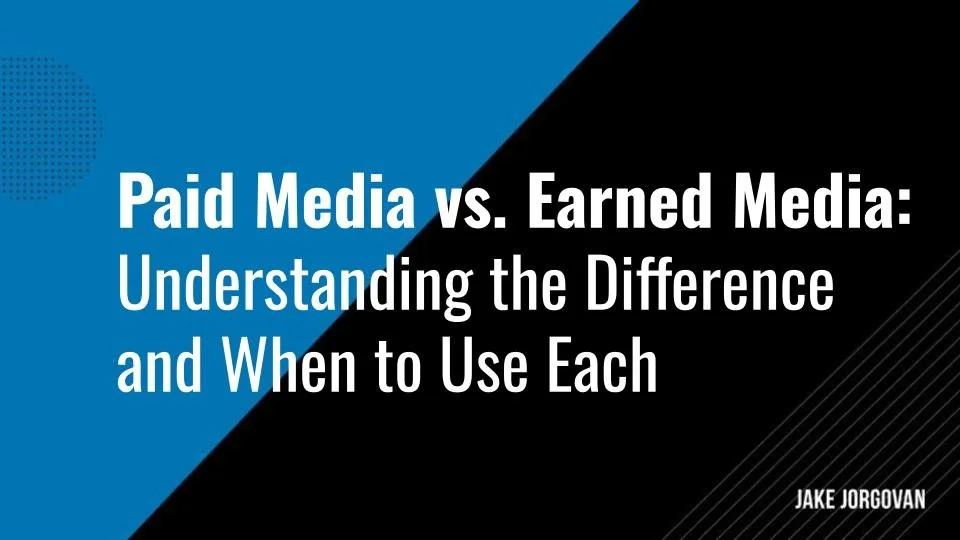Top 8 Trends in B2B Content Marketing for 2025
B2B content marketing has seen a significant evolution, with an increasing focus on budget allocation towards video, thought leadership content, and influencer marketing.
A notable 45% of B2B content marketers expect their budgets to increase in 2025, highlighting a shift towards more dynamic and engaging content formats.
“Content is the virtual salesperson for the long B2B buying cycle.” - Rachel Balik, Sr. Manager Content Marketing, Demandbase
To stay competitive in 2025, it's important for B2B marketers to adopt these emerging trends:
Prioritizing AI-driven personalization to cater to specific audience needs.
Leveraging video content to enhance SEO and social media visibility.
Integrating interactive elements like AR/VR to foster user engagement.
This article will delve into these top trends, providing actionable insights to help you harness the full potential of your content strategies.
Let’s dive in.
Trend #1: AI-Assisted Content Creation and Personalization
In 2024, 67% of marketers are utilizing AI tools for content marketing, with 79% reporting enhanced content quality as a result.
That happens because AI-driven content tools harness advanced algorithms to craft personalized messages that resonate deeply with individual audience segments.
This technology boosts productivity by automating routine tasks and refining content workflows, allowing marketers to focus on strategic, high-impact activities.
This leads to more effective affiliate marketing by aligning content precisely with user preferences and behaviors.
Why it matters:
Enhanced personalization: AI facilitates the crafting of content that aligns with the unique interests and behaviors of specific audience segments. This precision targeting fosters greater relevance and resonance, leading to increased audience engagement.
Improved engagement metrics: Top B2B content marketing agencies say that tailored content generates higher interaction rates, as users are more likely to engage with content that speaks directly to their needs and challenges.
Increased ROI: By delivering more relevant content, AI-enhanced strategies boost the likelihood of conversion, maximizing the return on investment for content marketing efforts.
Efficiency in scale: AI tools automate the personalization process, enabling marketers to implement customized content strategies at scale without a corresponding increase in time or resources.
Data utilization: AI leverages existing data to predict what content will perform best with which segments, thereby not only improving current engagement but also continuously refining future content initiatives.
Trend #2: Short-Form and Video Content Domination
In 2024, 66% of consumers report short-form videos as the most engaging content, but only 44% of marketers are expected to use short-form videos.
So, if you want to stand out from your competitors, leverage the growing preference for concise, impactful content.
The trend towards short, engaging videos on platforms like LinkedIn, YouTube, and TikTok reflects their ability to quickly capture and retain viewer attention.
These platforms favor concise content that conveys key messages swiftly, making them ideal for time-constrained professionals seeking rapid insights and solutions.
Why it matters:
Catching attention fast: Short-form videos capture attention swiftly in a digital environment where users rapidly scroll through content. This immediacy is key to engaging potential clients before they move on. Consider hiring one of the top short-form video agencies to win over this trend.
SEO benefits: Videos are highly shareable and tend to keep visitors on pages longer, which signals to search engines that the content is valuable, thus improving search rankings.
Social media algorithm favorability: Platforms like LinkedIn and TikTok prioritize video content in their algorithms, leading to higher visibility and engagement rates. This visibility is vital for B2B marketers aiming to expand their reach.
Enhanced engagement: Videos encourage more interactions, such as likes, shares, and comments, which can help amplify content organically across platforms.
Visual learning preference: Many professionals prefer visual and auditory learning modes, making videos an effective way to communicate complex information succinctly and memorably.
Trend #3: Interactive and Immersive Content
Interactive content significantly enhances user engagement, with 88% of consumers stating it engages them more than static content.
Interactive content assets include quizzes, polls, and AR/VR experiences.
These tools enhance engagement on the one hand, yes, but they also facilitate the collection of valuable data.
That means you can tailor strategies and improve targeting accuracy effectively.
Why it matters:
Brand differentiation: Interactive content helps set a brand apart by creating unique user experiences. When audiences actively participate, they are more likely to remember the brand and engage with it beyond traditional content formats.
Real-time feedback: Quizzes, polls, and immersive content provide instant insights into audience preferences and behaviors. This data enables quick adjustments to strategies, allowing marketers to react to trends and user needs more effectively.
Higher engagement: Interactive formats encourage users to invest time and thought. This deeper involvement leads to higher participation rates, which in turn can drive conversions and reinforce customer loyalty.
Trend #4: User-Generated Content and Peer Reviews
User-generated content (UGC) and peer reviews significantly enhance trust and authenticity in B2B markets. Notably, 97% of B2B customers consider testimonials and peer recommendations as the most reliable type of content.
Additionally, 84% of B2B buyers initiate their purchasing process with a referral, and 44% agree that peer reviews and UGC are playing a greater role in their decision-making process.
In other words, leverage UGC and peer reviews to build up your credibility and influence purchasing decisions in the B2B sector.
Why it matters:
Increased trust: Peer-generated content, such as reviews and testimonials, holds more credibility with B2B buyers. These real-world endorsements are seen as unbiased, making them far more persuasive than branded marketing.
Cost-effective: UGC requires minimal investment but yields significant returns. By leveraging customer experiences, companies can boost content output without the costs associated with traditional marketing. Take a look at these best UGC examples to get inspiration!
Stronger impact: Buyers are influenced by peer validation more than corporate messaging. UGC resonates on a personal level, fostering deeper connections and driving higher engagement rates.
Scalable strategy: UGC can be scaled across multiple platforms, amplifying reach and fostering a continuous stream of authentic content without heavy marketing resources.
🎯 Recommended reads:
Trend #5: Data-Driven Content Strategies
In 2024, 70.4% of B2B marketers consistently utilize data analytics to inform their decision-making processes.
The other almost 30% who don’t utilize data-driven strategies have a much harder time crafting content that aligns with their audience needs.
Real-time data and predictive analytics empower marketers to tailor content with precision. By analyzing customer behaviors and trends, marketers can adjust strategies dynamically. This data-driven approach ensures content aligns with audience needs.
And we all know relevant messages enhance engagement and improve the likelihood of conversion.
Why it matters:
Precision targeting: Data analysis allows for pinpoint accuracy in identifying target audience segments. Therefore, you can craft content that speaks directly to the specific needs and preferences of these groups.
Enhanced relevance: By using data to guide content creation, you ensure that every piece of content is highly relevant to its intended audience. This relevance boosts engagement by addressing users' exact interests and problems.
Increased conversions: Data-driven personalization enhances the user experience by delivering content that resonates more deeply. This tailored approach leads to higher conversion rates as content is more likely to motivate action.
Optimized resources: Leveraging data for content strategies helps allocate marketing resources more efficiently. Knowing what works and what doesn’t minimizes waste and maximizes ROI.
Trend #6: Sustainability and Social Responsibility
Sustainability has emerged as a leading priority for B2B buyers, with 36% ready to switch suppliers that fail to meet their sustainability expectations in 2025.
Additionally, 60% of consumers are more concerned about climate change than they were two years ago, and 64% of B2B buyers are expected to be Millennials and Gen Z’ers, who prioritize sustainability and social responsibility in their purchasing decisions.
These statistics prove the growing importance of sustainability and social responsibility in B2B content marketing, but we can also summarize more concisely.
Why it matters:
Trust enhancement: When brands demonstrate a genuine commitment to sustainability and ethical practices, they increase trust among B2B customers. This trust translates into deeper, more meaningful business relationships.
Brand loyalty: Customers are more likely to remain loyal to brands that align with their own values. Besides, 80% of customers are prepared to pay a premium for sustainability. So, by championing sustainability, you can foster a strong, loyal customer base willing to invest in your brand.
Market differentiation: In a competitive market, showcasing a commitment to social and environmental causes differentiates a brand from those less engaged with these issues.
Future proofing: Emphasizing sustainability prepares businesses for regulatory changes and shifts in market demands, ensuring long-term viability and relevance.
Trend #7: Content Communities and Influencer Collaborations
Influencer marketing is a key focus for 85% of B2B marketers, making it a central element in their 2025 strategies, and 60% of B2B buyers are more likely to consider a brand after reading content from an industry influencer.
Additionally, 94% of B2B marketers say influencer marketing is a successful strategy, highlighting the growing importance of influencer collaborations in B2B content marketing.
Why it matters:
Enhanced credibility: Influencers and thought leaders have strong trust bonds with their audiences. Their endorsement can lend significant credibility to a brand, signaling that the brand is a respected player in its industry.
Deeper engagement: Content shared by influencers or thought leaders typically sees higher engagement rates due to their ability to connect on a personal and professional level with their followers.
Expanded reach: Collaborating with influencers and thought leaders allows brands to tap into larger and more diverse audiences, potentially opening up new markets and customer segments.
Authentic advocacy: When these leaders advocate for a brand, their genuine interest and professional alignment with the brand's offerings translate into authentic, persuasive messaging.
Pro tip: Use hashtags, keywords, and follower lists to identify creators. Specialized influencer marketing tools can help you verify their engagement rates and ensure their profiles are free of fake followers.
Additionally, 84% of marketers identify LinkedIn as the best-performing social media platform for B2B content distribution.
These statistics underscore the importance of social-first strategies in enhancing visibility and engagement across digital channels. Let’s see exactly what you can expect.
Why it matters:
Targeted engagement: By focusing on platforms like LinkedIn, brands engage directly with professionals actively seeking industry insights, leading to more meaningful interactions.
Enhanced visibility: Social-first strategies maximize content exposure where the audience naturally congregates, increasing the chances of content being seen and shared.
Strategic adaptation: Tailoring content for specific social platforms allows for the use of native features that enhance engagement, such as LinkedIn articles or interactive polls.
Feedback loop: Active social platforms provide immediate feedback through likes, shares, and comments, helping brands quickly gauge content effectiveness and adjust strategies accordingly.
Integrating 2024’s Top B2B Content Marketing Trends for Maximum Impact
As we conclude our overview of 2024's top B2B content marketing trends, the emphasis is on dynamic, engaging content driven by technological innovation and strategic adaptability.
Video and interactive media are becoming staples, enhanced by AI personalization and data-driven insights for targeted engagement.
User-generated content bolsters authenticity, while themes of sustainability appeal to ethically focused businesses.
Omnichannel and social-first strategies ensure content reaches audiences effectively.
Final pro tip: If you want to stay ahead, integrate these trends into a cohesive strategy. Having a good, data-driven plan is essential for boosting engagement and driving growth.
Frequently Asked Questions
1. What is the future of B2B marketing in 2025?
The future of B2B marketing in 2025 focuses on integrating AI-generated content, account-based marketing, and personalized content to engage B2B audiences effectively. B2B companies are embracing hybrid events and virtual events to connect with potential customers while leveraging email newsletters and social media channels for strategic customer engagement.
2. What is the state of content marketing in 2025?
In 2024, B2B brands prioritize high-quality content over quantity. Audio content like podcasts is gaining traction, while blog posts remain a core part of any marketing campaign. B2B companies also focus on delivering personalized content to meet specific needs and expectations of B2B audiences.
3. What is the B2B social media strategy in 2025?
A successful B2B social media strategy in 2025 emphasizes using social media channels like LinkedIn and Twitter for thought leadership and customer engagement. Sharing high-quality content such as case studies, blog posts, and infographics ensures B2B companies stay relevant while building trust with potential customers.
4. What is the B2B trend in 2025?
Looking ahead to 2025, account-based marketing will dominate as B2B companies invest in hyper-targeted, personalized content campaigns. Emerging marketing trends include using advanced AI for customer engagement and expanding into immersive technologies like AR/VR for hybrid events.
5. How to do B2B content marketing in 2025?
To succeed with B2B content marketing in 2025, adopt a strategic approach:
Create high-quality content such as whitepapers, blog posts, and audio content tailored for B2B audiences.
Use email newsletters to nurture leads and maintain communication with potential customers.
Incorporate interactive formats in virtual events and hybrid events for better customer engagement.
6. What type of content is trending in 2025?
Trending content in 2025 includes audio content like podcasts, personalized content for targeted audiences, and dynamic formats for social media channels. B2B brands are also leaning toward interactive experiences in virtual events and visually engaging blog posts to captivate B2B audiences.
7. What should B2B marketers stop doing in 2025?
In 2025, B2B marketers should stop relying on generic, non-tailored campaigns. Avoid:
Overusing poorly executed AI-generated content that lacks authenticity.
Ignoring the importance of customer engagement through social media channels.
Running marketing campaigns without a strategic approach, which risks missing the expectations of B2B audiences.
















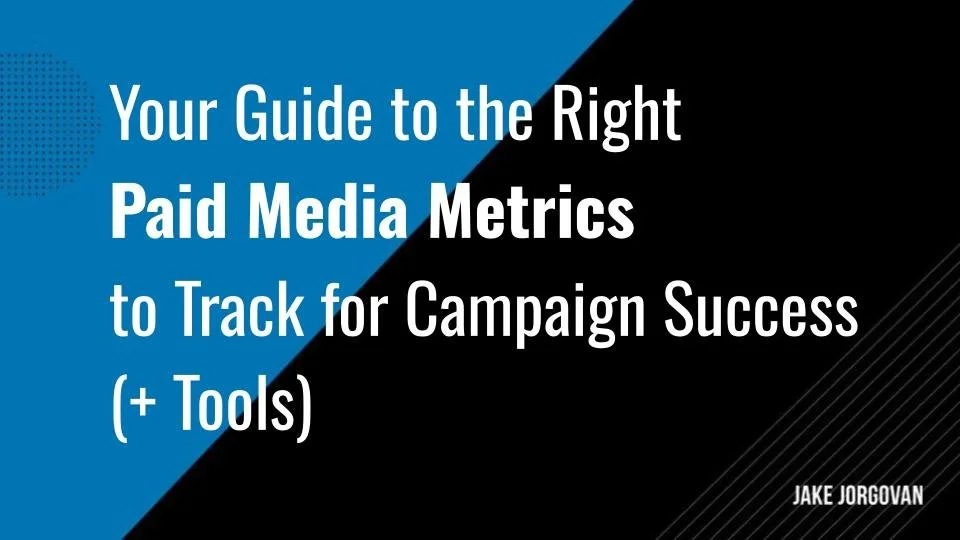



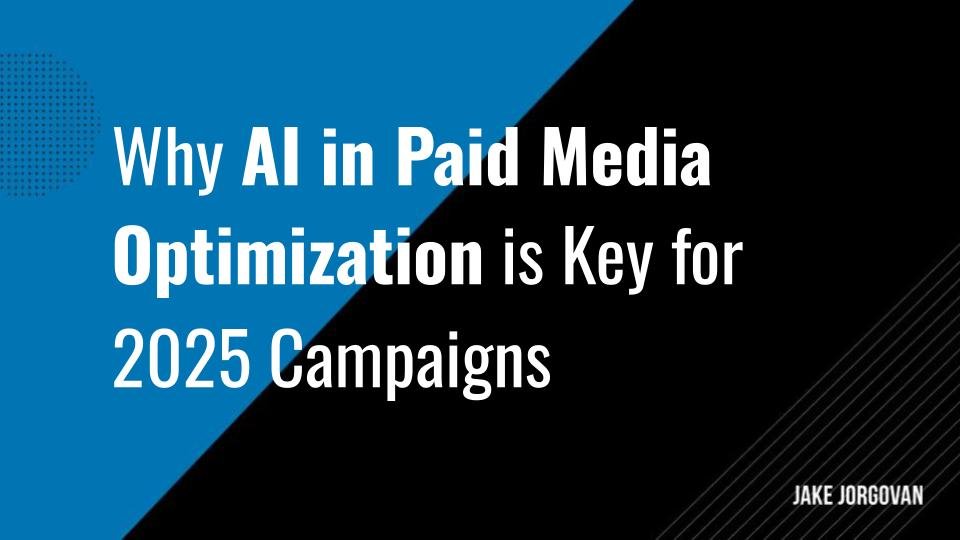
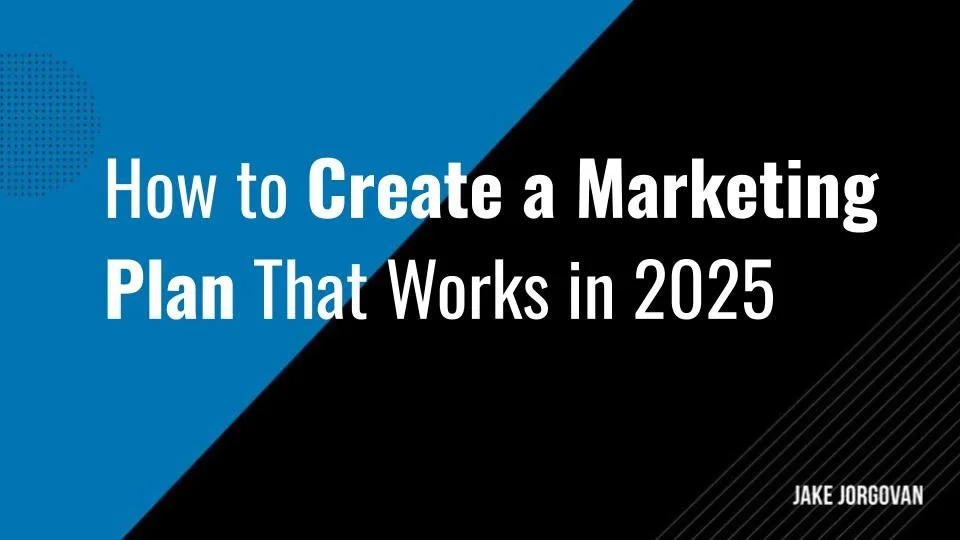
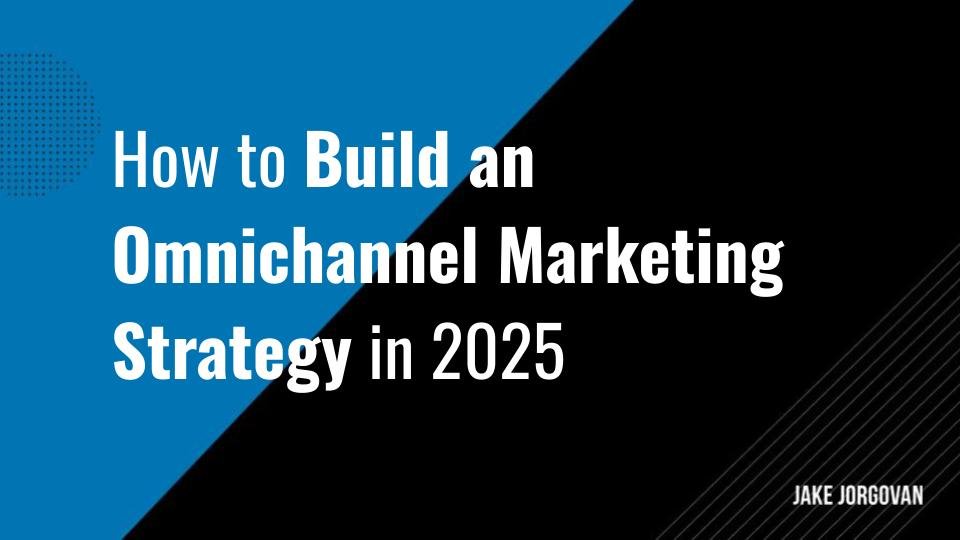

![Top 22 Paid Media Agencies to Work With in 2025 [Updated in March]](https://images.squarespace-cdn.com/content/v1/50baa49de4b0e51d69257e33/1705515561307-56Z45GN80B4L6J77ELDR/Top+12+Paid+Media+Agencies+to+Work+With+in+2024+%5BUpdated%5D.jpg)







